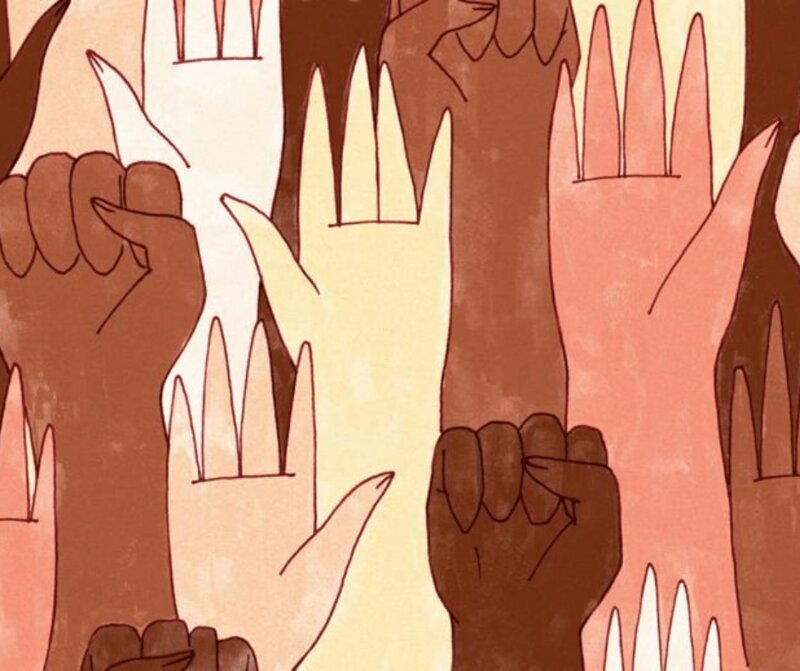
July 23, 2020
CCC: Where college admissions and the Black Lives Matter movement meet
By Barbara Connolly The Black Lives Matter movement is a pivot in cultural consciousness that will

By Barbara Connolly

The Black Lives Matter movement is a pivot in cultural consciousness that will affect how colleges admit and educate students. Image courtesy iStock
As Americans of all races take to the streets to confront racism more directly in 2020, the Black Lives Matter movement has officially hit the mainstream, and most Americans now support this anti-racist movement. This cultural shift may seem sudden to some, but it has been taking root for decades, and it is here to stay.
The current prevalence of BLM is not just another news story; it is a pivot in cultural consciousness that will affect every arena of our lives, especially education. Here are four ways the Black Lives Matter movement intersects with college admissions.
Admissions Equity is Changing
To discuss how BLM is setting the stage to change the future of the college admissions process, we first need to address how racism has shaped its past. Institutional inequities in public education have left many Black communities disadvantaged in the arena of college admissions. Currently, the college graduation rate of Detroit Public Schools students is less than 13%. Compare this to nearby suburbs such as Farmington or Ann Arbor, where college graduation rates are 53% and 70%, respectively.
The causes of these discrepancies are numerous and deep, but now that BLM has brought heightened awareness to the educational inequities facing Black students, college admissions are sure to change with the times. One measure we may soon see more of is affirmative action. The regents of the University of California schools have already voiced their endorsement to end the state’s ban on affirmative action.
Michigan voters amended our state constitution in 2006, banning affirmative action in our public universities. In light of recent political awakenings, we may see our own state soon follow the lead of California and reinstate the remedy of affirmative action. Whether you agree or disagree with the practice, the need for action in closing the racial educational gap is undeniably in the spotlight now, and change is on the horizon.
Anti-racist Activism & the Activity List
In any college admissions season, the activity list is essential to every student’s application. The activities you participate in tell admissions readers what you value, because they show how you invest your time. Colleges have always appreciated students who are involved in activism and community service. As universities aim to increase racial equity and diversity, they will surely be looking to admit students whose activities show openness to that mission.
High school students who are participating in the BLM movement, whether they are directly involved in activism or educating themselves on the movement, should be sure to include their interest and involvement in their college applications.
College Curriculum: It’s Time to Catch Up
In many ways, racism is a topic of educational importance. It has intersections with virtually every area of study, though these connections have often been overlooked. Now, students should look forward to a racial lens being a part of many of their academic studies.
Also, more students may enroll in programs and courses on topics such as African American Studies. These type of courses have long been available at many schools, but it is likely that in this current environment, more students will be interested in taking advantage of the college setting to educate themselves on these topics. It’s important to note, too, that a diverse student base in these classes brings the opportunity for more open and honest discussion in the classroom about the issues being discussed by the BLM movement.
As many students have not been educated on Black history and the history of racism, now is a good time to learn as much as you can about this subject. This is not just an issue of social awareness, but also of college preparedness.
Social Mobility is a Group Activity
Social mobility refers to the possibility of moving beyond the socioeconomic position in which you were born. This is the foundation of the “American dream.” BLM is shining a spotlight on systemic inequality that makes social mobility much further out of reach for some Americans than others. A quality education is the most established path to social mobility, which is why improving educational access for Black students (and other marginalized groups) is key to fighting racial inequality.
Although the name of the movement is Black Lives Matter, the issues it addresses should concern us all. To borrow a phrase from John F. Kennedy, “A rising tide lifts all boats.”
Although they are currently, and deservedly so, in the spotlight, Black students are not the only ones affected by systemic injustice, within college admissions and outside of it. If we all stand united in advocating for their fair treatment, we will help put in place admission practices that are more just and equitable for all.
Wherever you may stand on the many pressing political issues of our day, we are clearly living in an era of enormous significance to education. The status quo has been thoroughly disrupted.
The changes to college admissions may only be one part of many to come, but for students it’s important to understand how those changes will impact both their path to college and their experience when they arrive.
Black lives matter.
Barbara Connolly, J.D., is the founder and director of Birmingham-based College Choice Counseling, and a Certified Educational Planner. She can be reached at barbara@collegecc.com.
Share This Story, Choose Your Platform!
Marx Layne is your competitive advantage.
Your reputation and success are our only concerns.
